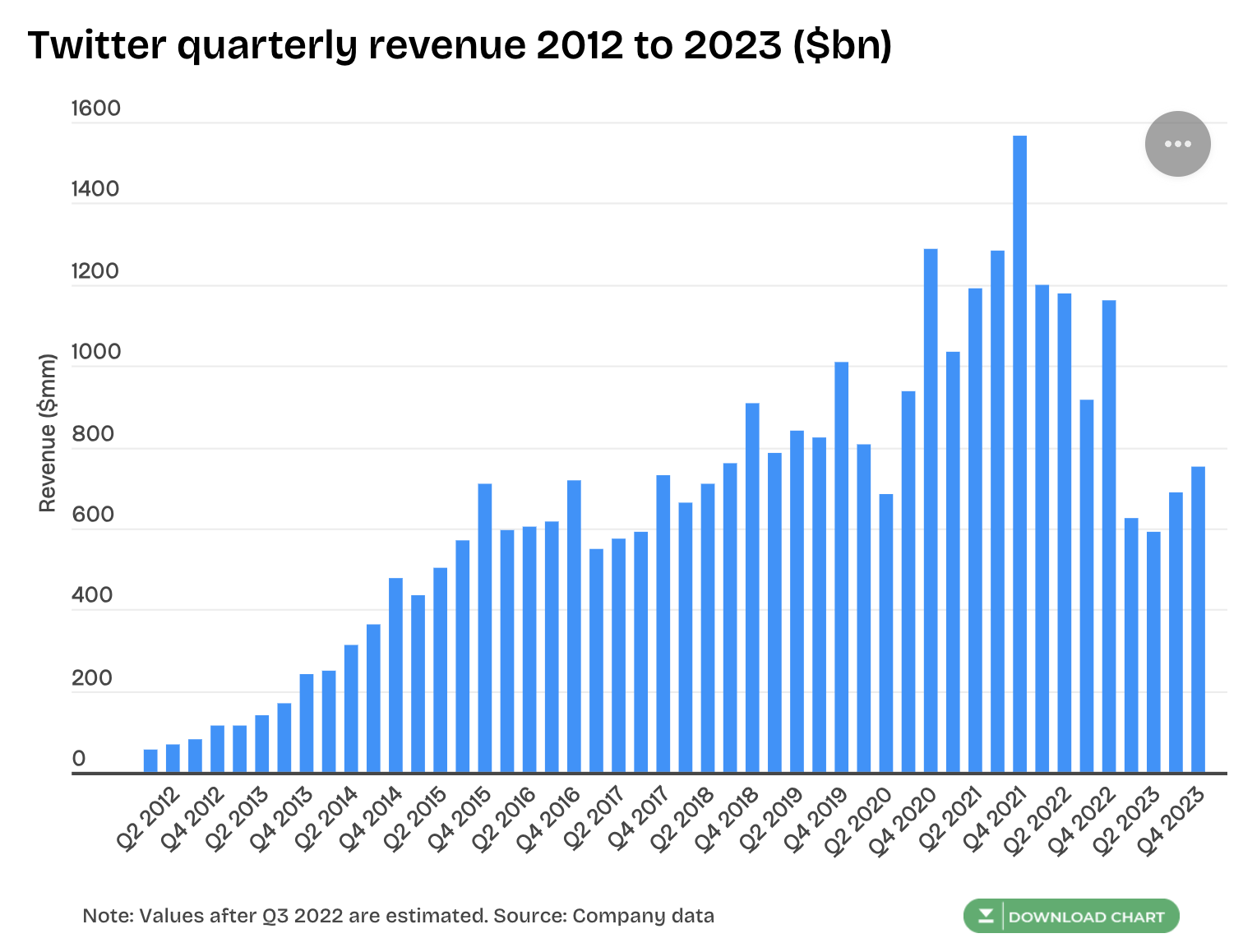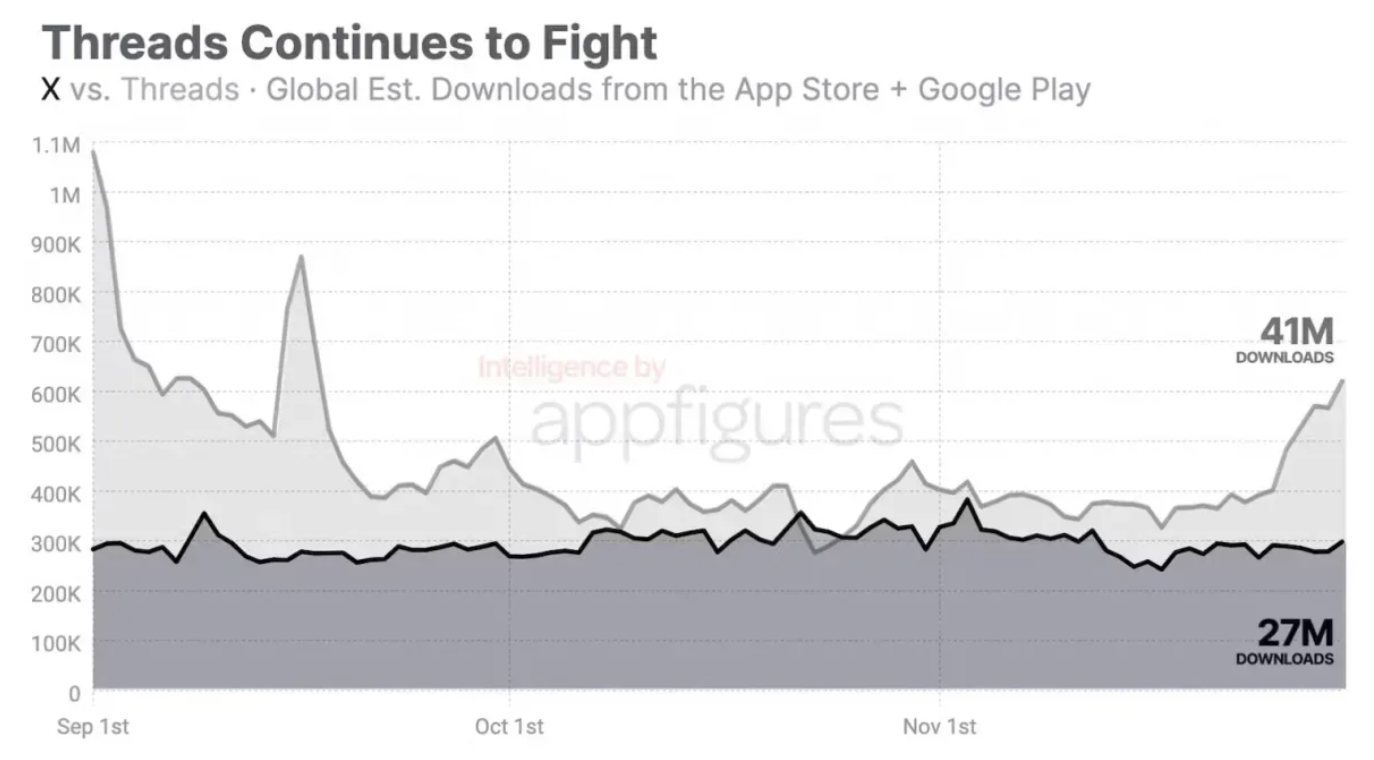Meta’s social networking app Threads has finally made its debut in the European Union, nearly five months after its initial launch in July ’23. This launch was eagerly anticipated as Threads positions itself as a direct competitor to X (formerly Twitter), offering users a platform for text updates and public conversations with a generous 500-character limit per post—nearly double that of Twitter’s.
The delay in launching Threads in the EU was largely attributed to compliance requirements with the EU’s stringent Digital Markets Act (DMA). The DMA aims to curb the dominance of Big Tech companies and ensure a level playing field for European businesses. One significant change made by Meta in response to the DMA was allowing users to access Threads without needing an Instagram account, addressing concerns around self-preferencing and ensuring compliance with the DMA’s rules.
At its launch, Meta’s CEO Mark Zuckerberg expressed excitement about expanding Threads into more European countries, highlighting the platform’s unique features, such as the ability to use Threads without a profile for browsing, albeit with limitations on interaction such as replying to, liking, or reposting content. This development is part of Meta’s broader strategy to innovate and adapt its offerings to meet regulatory requirements while expanding its user base. Additionally, Meta announced plans to integrate ActivityPub with Threads, allowing posts to be shared across compatible decentralized networks like Mastodon, further diversifying the app’s functionalities and user engagement opportunities.
The introduction of Threads in the EU signifies Meta’s commitment to navigating the complex landscape of digital regulations while striving to offer innovative and inclusive social media experiences to users worldwide. This move is expected to bolster Threads‘ user base and reinforce Meta’s position in the competitive social media landscape.
X, formerly known as Twitter, appears poised for a transformative year in 2024, with CEO Linda Yaccarino projecting profitability for the first time in its history. This bold assertion comes after a tumultuous period marked by a significant reduction in the workforce and ongoing legal battles related to financial obligations. Despite these challenges, Yaccarino highlighted a resurgence in advertiser engagement and an increase in user time spent on the platform, hinting at a potential turnaround for the social media giant.
The platform’s financial trajectory has been notably rocky, with a substantial drop in advertising revenue and a heavy debt load leading to negative cash flow in recent years. However, under new leadership, X is shifting its focus towards video content, creator partnerships, and commerce, alongside initiatives to share ad revenue with content creators, indicating a strategic pivot aimed at revitalizing its financial health and user engagement. Revenue from ad sales dropped by a staggering 55% from its altime high in 2021.

User reception to the rebranding from Twitter to X has been mixed, with some users maintaining their platform activity while others express intentions to reduce their engagement or leave entirely. A HubSpot survey reveals a nuanced user landscape: while 35% of respondents anticipate unchanged usage levels by 2024, nearly a fifth plan to increase their activity. However, 17% foresee ceasing their use of X altogether. This data suggests a community at a crossroads, grappling with the platform’s evolution and its place in their digital lives. 30% already did so. US monthly users will fall another 8.3% in 2024 to 50.5 million, the lowest level the platform has reached since 2014.
Comparatively, Meta’s Threads has emerged as a formidable competitor to X, achieving a significant lead in terms of daily downloads across both iOS and Google Play platforms. This trend not only reflects Threads‘ growing popularity but also signals potential shifts in user preferences towards alternatives that offer differentiated experiences or align more closely with user expectations for content moderation and community engagement.

Threads systematically keeps political content on leash to not drive controversy. Take Meta for example. After widespread backlash Meta faced over its role in the 2016 Russia/US presidential election controversy, Meta has wanted nothing to do with news. Reports that Russia-backed Facebook posts ‘reached 126m Americans’ during the US election led Meta to significantly rework its algorithm, suppressing news content and instead favouring wholesome content from family and friends. More recent controversies over the 2020 presidential elections have no doubt left Meta executives even more loath to encourage the release and discussion of news on their platforms.
With X and TikTok anyway there are enough platforms for far right and made up content.
Despite also facing stiff competition and the challenges of a rebranding effort, X reported a notable surge in new user sign-ups in December, with over 10 million individuals joining the platform. This growth occurred amidst a backdrop of major brands pausing their advertising campaigns on X due to concerns over content moderation and the platform’s direction under Elon Musk’s ownership. Musk seems to be getting more and more erratic with sharing far-right conspiracies, russian propagand, deleting community checks on his own posts, (who is cencoring right now?) and driving a wedge between society. The last surge in downloads came also with controversial nude AI pictures of Taylor Swift. Not really the quality content you want to have for advertisers or – anyone. X really get’s what i name usually is used for…
As X and Threads navigate their respective paths in the social media landscape, the coming year will likely be pivotal in determining their positions within the broader digital ecosystem. With both platforms aiming to innovate and captivate users and advertisers alike, the dynamics of engagement, monetization, and community building will be critical areas to watch.
So one more thought about Threads. I personally love using it – also the smoth interaction with Instagram.
The advent and exponential growth of meta threads mark a pivotal shift in digital communication, symbolizing a move towards more structured, engaging, and meaningful online interactions. The concept of meta threads mirrors a sophisticated conference setup, where a central theme branches out into various in-depth discussions, allowing for a more organized exploration of topics. This innovative approach not only enhances content creation and user engagement but also significantly influences digital marketing strategies, leading to improved campaign outcomes and higher conversion rates.
Over the past five years, meta threads have seen a dramatic increase in usage, growing from a mere 1% of online discussions in 2020 to dominating 70% of digital conversations by 2024. This surge underscores the format’s capability to streamline the vastness of online discourse into more digestible, focused, and engaging conversations. Platforms like Reddit, Twitter, Facebook, and LinkedIn have adopted meta threads to varying degrees, with Reddit leading at 95% usage among its user base, indicating the wide applicability and appeal of meta threads across different digital environments.
User engagement statistics further highlight the effectiveness of meta threads, with a 60% higher click-through rate and a 45% increase in comments compared to traditional threads, emphasizing their role in fostering active participation and discussion. Moreover, the format’s shareability, being 50% higher than standard threads, amplifies the reach and impact of discussions, benefiting both users and content creators by facilitating a richer, more interactive online experience.
In the field of digital marketing, meta threads have proven to be a game-changer, enabling marketers to craft more nuanced, interactive narratives that resonate with and engage their audiences on a deeper level. The structured yet flexible nature of meta threads allows for tailored storytelling, significantly improving campaign performance and enhancing consumer-brand relationships.
Looking ahead, the future of meta threads appears promising, with an expected growth rate of 30% by 2026. This prediction reflects ongoing technological advancements and a continuous demand for more sophisticated digital communication tools. As the digital landscape evolves, meta threads are poised to play a central role in shaping how we engage, share, and discuss online, marking a significant evolution in our digital discourse culture.
As mentioned – personally I love it. And I actually deleted Twitter from my phone three days ago.
What do you think?
